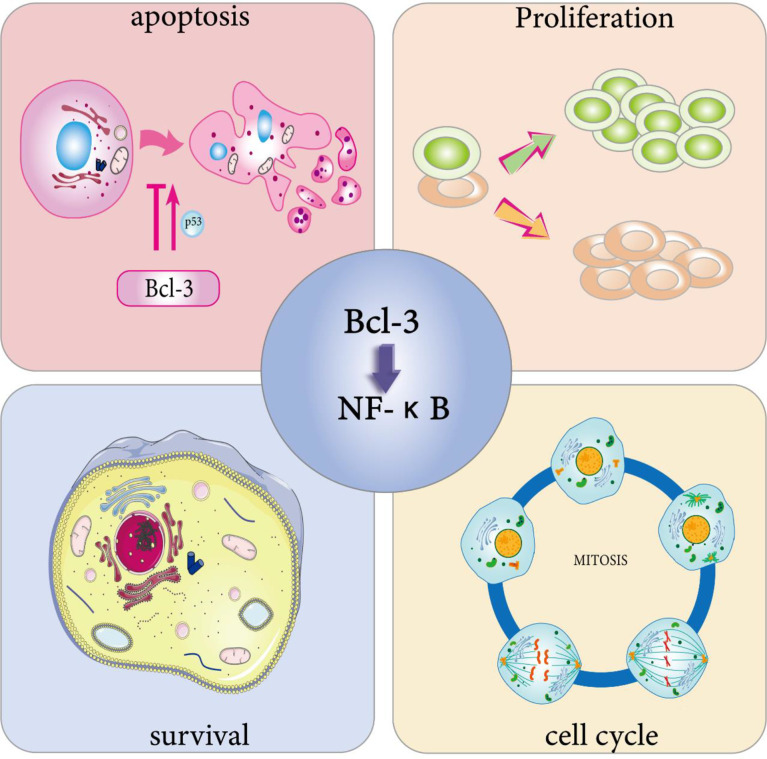Figure 2.
Physiological effects of Bcl-3. Bcl-3 is able to participate in cell cycle regulation. On the one hand, it can directly trigger cell division through the activation of cell cycle protein D, thus promoting cell proliferation, and on the other hand, the overexpression of Bcl-3 slows down T cell proliferation at an early stage during the T cell response to antigen. Bcl-3 has been shown to be a survival gene. In immune cells, activated T cells overexpressing Bcl-3 showed increased survival, while T cells lacking Bcl-3 died abnormally. Bcl-3 has been widely defined as an anti-apoptotic gene. One of its anti-apoptotic pathways involves p53 regulation. However, in survival studies of multiple myeloma (MM) cells, overexpression of Bcl-3 increased apoptosis. The cell characteristics that determine whether Bcl-3 promotes or inhibits the transcription of NF-κB-dependent antiapoptotic genes still need to be identified.

